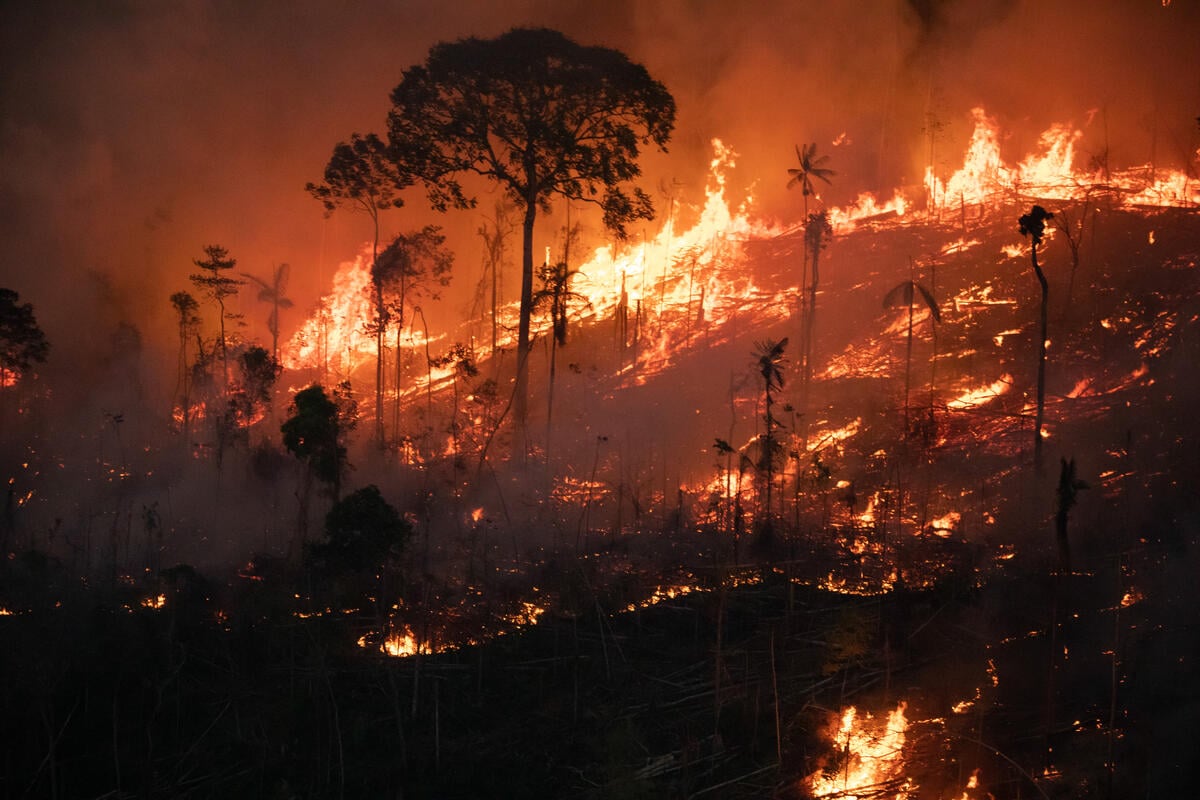New bill is Canada’s chance to take a monumental first step in understanding and addressing environmental racism.
Environmental racism is a form of systemic racism whereby Black, Indigenous and other people of colour are disproportionately burdened with environmental and health hazards through policies and practices that place them in proximity to sources of toxic pollution such as landfills, mines, major roads, sewage facilities, chemical facilities and sources that emit airborne or waterborne hazardous pollutants.
As a result, these communities suffer higher rates of health problems. Black civil rights leader Benjamin Chavis coined the term, describing it as “racial discrimination in environmental policy-making, the enforcement of regulations and laws, the deliberate targeting of communities of colour for toxic waste facilities, the official sanctioning of the life-threatening presence of poisons and pollutants in our communities, and the history of excluding people of colour from leadership of the ecology movements”.
These issues are long standing. In a 2019 report the UN Special Rapporteur on Human Rights and Toxics highlighted Canada’s issues with and patterns of environmental racism, including the mercury pollution crisis in Grassy Narrows, health risks posed to Indigenous peoples by the multibillion-dollar oil sands in Fort McMurray, the impacts of chemical pollution on the Aamjiwnaang First Nation in Sarnia, and African and Indigenous communities in Nova Scotia who are disproportionately situated near industrial waste and garbage dumps. The latter issue was recently highlighted in the 2019 Netflix documentary There’s Something in the Water, co-directed by Elliott Page and based on the book of the same name by Ingrid Waldron.
Canada now has an historic opportunity to start to address these terrible wrongs. Bill C-230 is a private member’s bill brought by Liberal MP Lenore Zann, entitled An Act respecting the development of a national strategy to redress environmental racism. The bill just passed second reading this week.
Vote result: Bill #C230 was adopted at 2nd reading and referred to the #ENVI committee. #cdnpoli
— In the Chamber (@HoCChamber) March 24, 2021
Yeas: 182 ✅
Nays: 153❌ pic.twitter.com/NWQZFFwMUA
If passed into law, the Bill will require the Minister of Environmental and Climate Change to “develop a national strategy to promote efforts across Canada to redress the harm caused by environmental racism. It also provides for reporting requirements in relation to the strategy.” In developing the strategy, the Minister would consult with provincial, municipal and Indigenous governments, and affected communities and people.
The strategy itself would examine the links between race, socio-economic status and environmental risk, collect information and statistics on environmental harm and health outcomes, and assess the administration and enforcement of environmental laws in each province.
Importantly, the strategy would try to tackle environmental racism by supporting measures to amend laws, policies and programs, provide compensation and funding for affected communities, and provide access to clean air and water.
There are several problems in our municipal, provincial and federal laws and policies that have allowed these abuses to continue against marginalized communities. A law like this won’t fix things like a magic wand. We cannot uproot people from their homes overnight, or remove toxic chemicals from the air with the flick of a switch.
But this law will be important in driving accountability and action. That is, changing our laws, compensating communities immediately, and providing access to the healthcare and resources they need. Furthermore, we need corporate and government accountability.
As a result of Flint water crisis in Michigan, in which the drinking water for the city of Flint was contaminated with lead and bacteria leading to illness and death, the Michigan Governor and eight other officials were criminally charged for their role in the crisis while several class actions and civil suits have been filed against different levels of government and government agencies.
If we have the financial and technical capacity to address the problems of environmental racism in Canada now, why wait? Why wait until more people have died and lawsuits have been filed?
We must pass Bill C-230 and commit ourselves as a nation to finding solutions to redress and prevent the harm caused by environmental racism.You can help by tweeting your support, contacting your MP, and signing Ecojustice’s petition in support of Bill C-230.
#BillC230 is a chance to take a first step in understanding – and addressing – #EnvironmentalRacism in Canada.
— Greenpeace Canada (@GreenpeaceCA) March 23, 2021
TAKE ACTION with @ecojustice_ca: tell your MP to say YES to Bill C-230 >> https://t.co/uU8J14tgmT https://t.co/RMn3enI5aT #EndRacism #Cdnpoli



